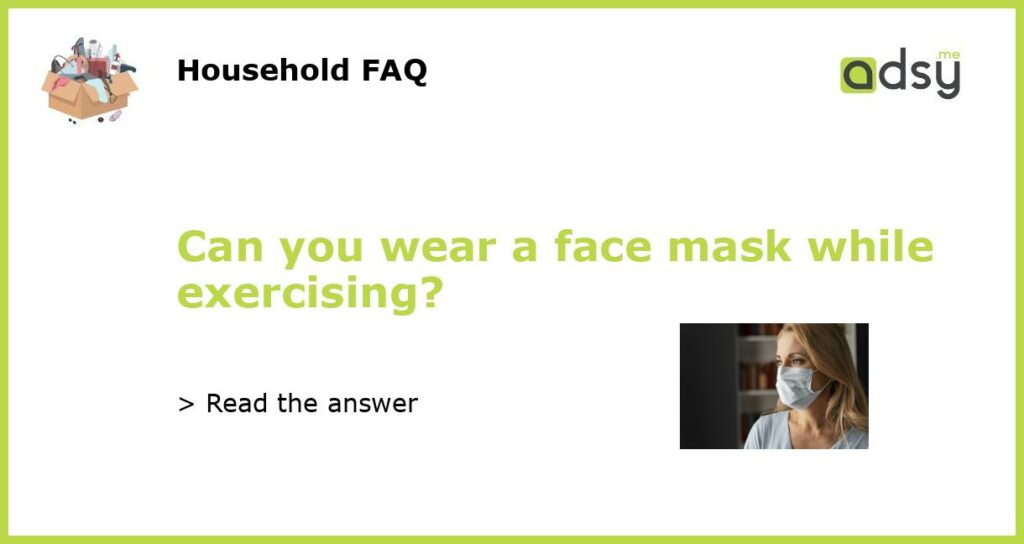Why people are concerned about wearing a mask while exercising?
Since the onset of the COVID-19 pandemic, wearing masks has become the norm in most places. However, many people are still concerned about whether they should wear a mask while exercising. Exercising already raises your heart rate and makes it difficult to breathe, and wearing a mask can make it even harder. There are also concerns about whether masks can restrict oxygen intake or increase carbon dioxide levels, leading to potentially dangerous health issues.
What do experts say about wearing masks while exercising?
According to the Centers for Disease Control and Prevention (CDC), masks should be worn during indoor activities and outdoor activities with no option for social distancing, such as group runs or cycling. The World Health Organization (WHO) also recommends wearing masks during exercise, especially when physical distancing is not possible. However, they also recommend adjusting the intensity of your physical activity to match your breathing capacity while wearing a mask.
What precautions should you take while wearing a mask during exercise?
If you decide to wear a mask during exercise, there are some precautions you should take to minimize potential health risks. The WHO recommends choosing a mask that allows for good airflow and avoiding masks that are excessively tight or have filters or valves. It’s also essential to stay hydrated and take breaks if you feel lightheaded or short of breath and avoid high-intensity exercise activities that can cause breathlessness.
What are the benefits and drawbacks of exercising while wearing a mask?
Wearing a mask while exercising can help prevent the spread of COVID-19 by reducing respiratory droplets’ spread. It can also create a sense of safety and responsibility in others, inspiring them to wear masks and practice social distancing. However, exercising while wearing a mask can be challenging, leading to discomfort, breathing difficulties, and increased heart rate. It can also impact your performance and affect your motivation to exercise regularly.
Wearing masks is essential to prevent the spread of COVID-19, and exercising is crucial for maintaining good physical and mental health. While wearing a mask while exercising can be challenging, it is possible, and precautions can be taken to mitigate any potential risks. Experts recommend wearing masks during indoor and outdoor activities where social distancing is not possible, choosing masks that allow for good airflow, and adjusting the intensity of exercise to match your breathing capacity. Ultimately, it’s essential to listen to your body, stay hydrated, and take breaks whenever necessary while wearing a mask during exercise.






